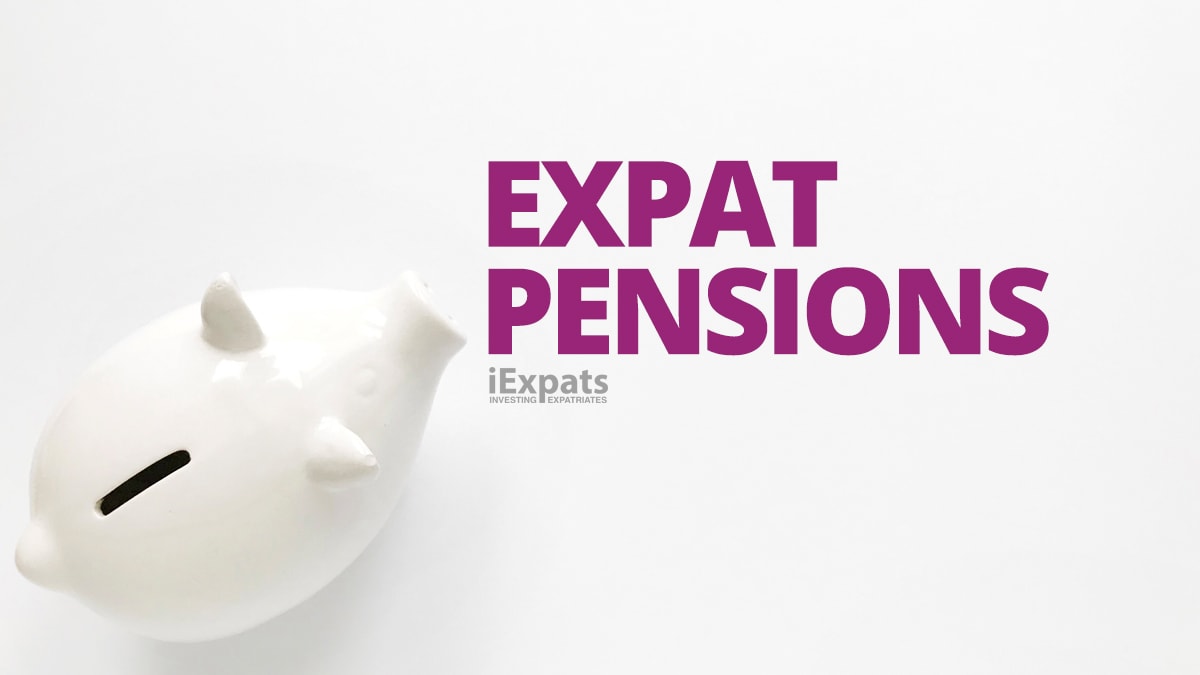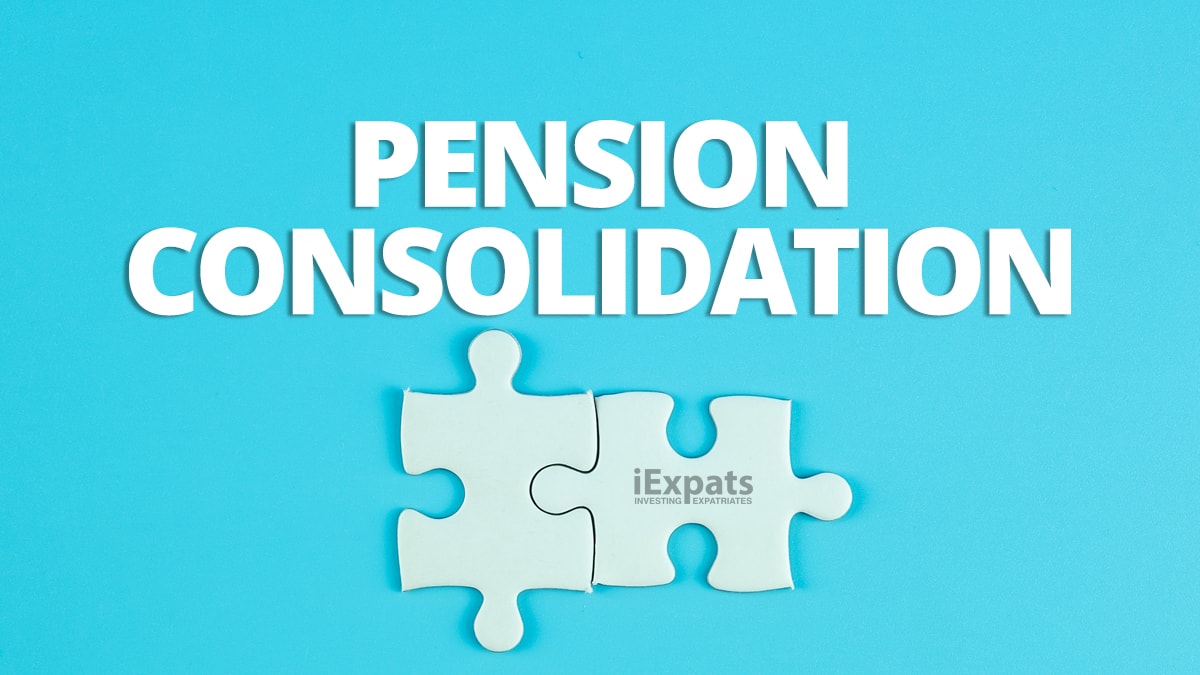Few modern pensions offer a retirement income guarantee which means it pays to be more hands on about how your hard-earned money is invested.
One of the big questions is where can you put your money to gain the best return?
If you have a string of workplace pensions, now is the best time to put them all into one pot to benefit from economies of scale.
According to finance platform PensionBee, 44% retirement savers have looked at consolidating their pensions while they have had extra time on their hands.
The firm also saw pension transfer rise by 24% in April, compared with 12 months earlier.
The good news for expats is many UK workplace and personal pensions can go under one roof in a QROPS or SIPP expat pension.
Pension Consolidation Explained
Pension consolidation means combining all your pensions into one.
If you have several workplace pensions that you have left behind over the years, it can be difficult to keep track of how they are performing and the income they will provide when you retire.
You may also find each pension has a different retirement age, which may not suit your plans.
But one of the most important reasons for combining pensions is cost. Older pension schemes are often pound-for-pound invested a lot more expensive to run.
Combining pensions while you are still working can have a big impact on your retirement income – providing you take professional advice and make the right decisions.
Don’t forget you can always combine several pensions but leave the ones with bonus benefits where they are.
You will have to speak to an IFA or the government’s free Money Advice Service for guidance if you are in a defined benefit scheme and the fund is worth more than £30,000.
Reasons To Combine Pensions
Consolidating your pension savings under one roof leads to economies of scale.
Moving to a QROPS or international SIPP immediately opens a door to many more investments across markets a UK pension cannot hope to offer.
Easy access
Flexible access is always important to consider. If your workplace pensions do not start paying until you are 60 or 65 years old, combining them in a new scheme lowers that age to 55.
Under flexible access rules, you can access your money earlier to spend how you want.
This is worth thinking about if you are in poor health as you will have the money to give up work much earlier than planned.
Investment control
Combining pensions gives more control over investments, while most modern pensions come with 24/7 access on the web or with a smartphone app.
Beating the lifetime allowance tax trap
Another important aspect of combining pensions is outsmarting the lifetime allowance.
If your pension savings are nudging the £1.073 million lifetime limit but still below the line, move them to a QROPS. Consolidating to an offshore expat pension removes the lifetime limit and allows the fund to grow to any size without penalty.
Keeping the pensions separate could see the total fund growing to more than the allowed lifetime allowance which attracts a 55% tax penalty charged against excess savings over the limit.
Better financial clout
Some small pension pots fall below the best rate annuity deals, so you may get a better deal If you combine them to make a bigger pot and then buy an annuity.
You can also keep tighter control of your annuity payments in one place rather than split over several pensions.
Don’t include a pension that has a guaranteed annuity rate in the consolidation because you could lose valuable income in retirement.
How High Fees Impact Your Retirement Cash
High fees and poor investment performance can severely reduce you pension pot.
Consumer magazine Which? shows how combining pensions can double retirement money with an example:
A worker aged 35 with £10,000 invested in a pension until the age of 65 with a fund charging 2% management fees and 5% growth is worth £23,720 on retirement.
The same £10,000 invested in a new pension charging a management fee of 1.5% but offering 7% growth would be worth £48,541 over the same period.
Reasons Not To Combine Pensions
Under most circumstances, if you have a final salary scheme in your pension portfolio or where you work, keep it as you are likely to lose some valuable benefits.
You would strip away guarantees like annual increases linked to the cost of living, preferential annuity rates that are better than those on the current market and income for your spouse if you die.
Many older pensions may include exit fees in the small print that are unlikely to make combining pensions cost-effective. Exit fees are capped at 1% from a saver’s 55th birthday.
They may also include a tax-free lump sum on retirement of more than the standard 25% paid by a UK pension and come with critical illness or life insurance.
Trivial pot pursuit
Don’t combine pensions with pots worth more than £10,000. Savers can opt to take the cash from three pots of £10,000 or less without affecting their lifetime allowance.
If you are still paying into a pension
Flexible access can affect the amount you continue to save if you take money from the age of 55.
Before taking any money, the annual contribution limit allows you to save up to £40,000 a year while still receiving tax relief. This reduces to £4,000 a year once money is in drawdown.
Pensions You Can Combine
Retirement savers can combine many pensions into one fund, including:
- Workplace defined benefit or final salary pensions with income based on length of time with an employer and salary on retirement.
- Workplace or personal defined contribution pensions with income based on the value of cash and investments held in the fund
- Funded public sector pensions, like local government pensions
- QROPS offshore expat pensions
- SIPPs – both UK and international schemes
- Swiss pensions – Expats leaving Switzerland must follow special rules to transfer their pension savings
Pensions You Can’t Combine
The UK State Pension is protected until state retirement age and the fund cannot be transferred or cashed in at any time.
The same applies to unfunded public sector and civil service pensions covering roles like teachers, and nurses.
Offshore Expat Pension Solutions

Combining your pensions into a QROPS can resolve many of the issues discussed above.
QROPS remove problem with the lifetime allowance and contribution levels but are not available in every country.
Currently, expats in the European Economic Area can take out a QROPS, but few countries outside Europe offer the expat pensions. International SIPPs are also an option.
Make sure you understand the QROPS overseas transfer charge that applies to non EU QROPS transfers.
Tracing Lost Pensions
If you have mislaid or forgotten the details of any pensions, you can try and track them through the government’s free Pension Tracing Service.
You will need some details, like employer names and dates you worked for them, to access the service online.
You can call the service on 0800 731 0193 or +44 (0)191 215 4491 from abroad.
Read our expat pension tracing guide
Where To Find Advice
If you are an expat or planning to settle abroad soon, speak to a suitably qualified independent financial adviser.
A good adviser will check through your pensions and other savings and investments to devise a strategy that saves you fees, retains benefits and enhances growth.
Read our in-depth guide about how to choose a expat financial adviser.
Pension Consolidation FAQ
Pensions are dogged with rules that can make combining funds into one an administrative nightmare.
Retirement savers are often confused about pension consolidation – and here are the answers to their most asked questions.
Yes. Age is not a factor in pension consolidation if you are between 18 and 75 years old
Yes. Speak to an international IFA and explain when you intend to settle overseas. If you plan to leave the UK in six months or so, the IFA can set up an offshore expat pension for you
The rules stay the same until the Withdrawal Agreement transition period ends on December 31, 2020. The government has not indicated if any changes are expected after that date. For expats outside Europe, nothing is expected to change.
It’s worth taking the time to jot down where and when you worked for various employers. If you have a CV that might help. You may have a significant sum tied up in a lost pension that could ease your finances on retirement. Speak to the Pension Tracing Service – it’s free.
Your IFA should give you two forecasts – one explaining your current pension status and predicted fund values on retirement and a second for combining your savings in another fund.
Yes, but you may want to investigate if you could improve your retirement pot by switching the money to an offshore expat pension.
Pension consolidation is combining your retirement savings into one scheme. You don’t have to combine every pension if that would mean missing out on tax breaks or other benefits.
Most personal pensions can be consolidated into a single scheme
Yes, providing you are over 55 years old, but this may impact on how much you can save into your new pension each year. Speak to a financial adviser to make sure you fully understand the consequences of taking the money.
No. You can invest in passive tracker funds or appoint a fund manager, who can be your financial adviser or work for you pension provider.
Related Information
Below is a list of related articles you may find of interest.
